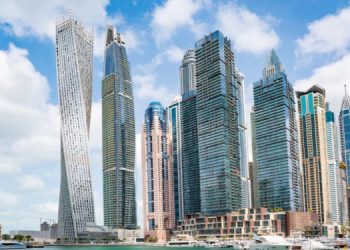Iranians are voting in a runoff election on Friday to replace the late President Ebrahim Raisi, who was killed in a May helicopter crash in the country’s northwest along with the foreign minister and several other officials.
Voters will choose between hard-line former nuclear negotiator Saeed Jalili and reformist candidate Masoud Pezeshkian, who has aligned himself with those seeking a return to the 2015 nuclear deal with world powers.
Domestic issues that have loomed over the race include a renewed crackdown on mandatory headscarfs for women and a proposed gasoline price hike, as well as years of economic malaise marked by widespread unemployment and high inflation.
After a record-low turnout in the first round of voting June 28, it remains unclear how many Iranians will take part in Friday’s poll. Iranian law requires that a runoff if no one candidate gets more than 50% of all votes cast in the first round.
While 85-year-old Supreme Leader Ayatollah Ali Khamenei has final say on all matters of state, presidents can bend Iran toward confrontation or negotiations with the West.
Here is the latest:
Both hard-liner Saeed Jalili and reformist Masoud Pezeshkian voted Friday in south Tehran, home to some of the capital’s poorest neighborhoods in an attempt to stir their turnout.
As Jaili walked, his supporters gathered around chanting: “Raisi, your way continues!” It’s a reference to the late hard-line President Ebrahim Raisi, who died in a helicopter crash in May.
Pezeshkian also drew a crowd chanting: “The nation’s hope comes.”
He was accompanied by his ally, former foreign minister, Mohammad Javad Zarif, who helped reach Iran’s 2015 nuclear deal with world powers.
An media survey of 30 polling stations across Iran’s capital saw a light turnout similar to that of last week, though the presidential election had hours yet to run.
State television in Iran has shown images of modest lines at polling places they were stationed at on Friday. However, many of those visited by the news agencies saw few voters. Tehran has nearly 7,000 polling places.
A heavy security force presence also could be seen on the streets.
Voter Samira Sharafi, a 34-year-old mother of a toddler, said she voted for reformist Masoud Pezeshkian. She described him as “more experienced” than his hard-line rival, the former nuclear negotiator Saeed Jalili. Sharafi said she had voted for the hard-line parliament speaker Mohammad Bagher Qalibaf lasat week.
At another polling site, 27-year-old Yaghoub Mohammadi said he voted for Jalili, as he had voted in the first round.
“He is clean without dependency on powerful people in the establishment,” Mohammadi said. “He represents those who had no access to power.”








